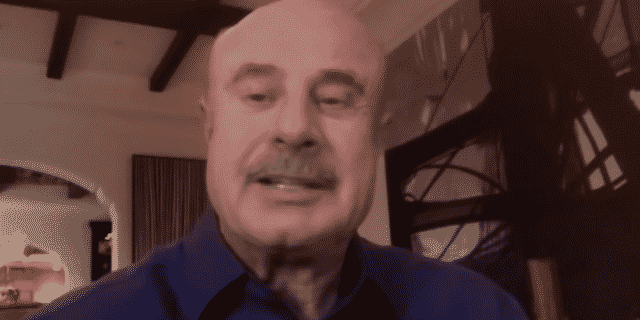Dr. Phil McGraw is explaining the science behind hoarding amid the coronavirus outbreak.
The former psychologist appeared on “The View” on Monday for a Facetime discussion about the heightened levels of anxiety as a result of the coronavirus pandemic.
Cities, businesses, and organizations are all enforcing “social distancing” in an effort to flatten the coronavirus curve, as previously reported on IJR.
As a result, many Americans have reacted in panic and fear. Now, Dr. Phil is offering an explanation for this reaction.
When asked what can people do to reduce their level of anxiety amid the outbreak, Dr. Phil noted that it is imperative for people to understand that they aren’t helpless.
“We have to realize we are not helpless,” Dr. Phil said.
“The main thing that makes people really feel anxious is if they feel like they’re just helpless and there’s nothing they can do. Then that gets into the mental help aspect of this thing. We have to understand that we can do things to protect ourselves and the people that we love.”
Dr. Phil went on to suggest limiting the number of sources people rely on for information and the time they spend looking at updates. He also stressed the importance of listing to health experts and scientists as opposed to the politicized aspects of the coronavirus.
Check out Dr. Phil’s full explanation below:
While some of the statistics do make up the coronavirus death toll, Dr. Phil suggests focusing on the silver lining — an estimated 85 percent of people with the virus have only mild symptoms that haven’t required hospitalization, he says.
Dr. Phil was also asked about the psychology behind the behavior of people hoarding in the wake of a crisis — including “the great toilet paper crisis of 2020,” as co-host Meaghan McCain described.
While Dr. Phil believes it is “predictable,” he also explains why he thinks its “irrational.”
“It’s predictable but I don’t think it’s necessarily normal. I think it’s an irrational fear that we’re heading into the apocalypse here and that’s just really not true. People need to understand that half of the people in the world that have had this disease have already recovered and gone back to their lives.”
Noting the statistics in China, Dr. Phil reiterated that while more than 80,000 people have tested positive, almost 65,000 have recovered.
“We kind of think that these shelves aren’t going to be restocked and it’s sort of an irrational fear that we’re going to be held up in caves forever,” he said, adding, “That’s just simply not going to happen.”
This follows as many places across the country focus on social distancing, implementing an array of closures. Several schools, bars, restaurants, gyms, movie theaters, and others have either opted to incorporate different strategies for operation or to close indefinitely.
The closures and curfews have appeared to contribute to heightened anxiety because it is unclear how long these measures could remain in place.
Over the weekend, stores across America were left with empty shelves after shoppers went searching for food, soap, hand sanitizers, disinfectant sprays, and toilet paper. There were at least 5,000 positive coronavirus cases in the U.S., as of Tuesday afternoon.

























 Continue with Google
Continue with Google